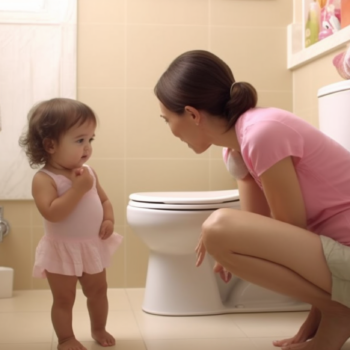Potty training can be a challenging experience for both parents and kids. One question that often arises is whether or not to use rewards as a part of the process. While some experts suggest that rewards can be effective in motivating children to use the potty, others argue that they can create a reliance on external incentives and may not lead to long-term success. Ultimately, the decision to use rewards should be based on your child's individual needs and temperament. If you do choose to use rewards, it is important to use them sparingly and to transition away from them as your child becomes more comfortable with using the potty on their own.
Tag: rewards
Ultimate Guide to Successful Potty Training for 2-Year-Old Boys
Potty training can be a daunting task, but with the right approach, it can be a smooth and successful process. When it comes to potty training a 2-year-old boy, it's important to have patience, consistency, and a positive attitude. Start by introducing your child to the potty and encouraging them to sit on it regularly. Praise and reward them for any progress they make, and gradually increase the time they spend on the potty. It's also important to be prepared for accidents and to handle them calmly and without punishment. With these tips and a little bit of time and effort, your 2-year-old boy can be successfully potty trained in no time.
Understanding the Signs of Toddler Readiness for Potty Training
Potty training can be a daunting task for parents, but it doesn't have to be. The key is to wait until your child is developmentally ready. Signs of readiness include showing interest in the bathroom, being able to communicate when they need to go, and having the physical ability to control their bladder and bowel movements. Timing is also important - don't start too early or too late. By waiting for the right cues and being patient, potty training can be a successful and positive experience for both you and your little one.
The Ultimate Guide to Potty Training: Average Timeframes and Tips for Success
Potty training is a major milestone for parents and children alike. However, there is no set timeline for how long it takes to potty train a child. The process can range from a few days to several months. Some factors that can affect potty training include your child's age, temperament, and readiness. It's important to remember that every child is different and may require a unique approach to potty training. By understanding the process and being patient, you can help your child successfully transition to using the toilet independently.
Potty Training: Choosing Between Rewards and Incentives for Your Son’s Success
Potty training is a significant milestone in a child's development, but it can be challenging for parents. One common dilemma is whether to use rewards or incentives. While both can be effective, it's essential to choose the right approach that suits your child's personality and behavior. Rewards, such as stickers or treats, can be motivating for some children, while others may respond better to incentives, such as screen time or a special outing. Whichever approach you choose, consistency and positive reinforcement are key to successful potty training. Remember to celebrate every small achievement and be patient with your child's progress. With the right approach, potty training can be a rewarding and positive experience for both you and your child.
Effective Potty Training Techniques for Boys: Tips and Tricks to Try
Potty training is a milestone that every parent looks forward to, but it's not always easy, especially when it comes to boys. However, there are several techniques that can make potty training boys a breeze. One effective technique is to use positive reinforcement, such as stickers or small rewards, to encourage boys to use the potty. Additionally, teaching boys to sit down to pee initially can make the transition to standing up easier later on. Finally, consistency and patience are key when potty training boys. With these techniques and a little bit of effort, parents can successfully potty train their boys in no time.
Top 8 Mistakes Parents Make When Potty Training Boys.
When it comes to potty training boys, there are a few common mistakes that parents often make that can hinder progress. One of the biggest mistakes is starting too early or pushing too hard, which can lead to resistance and setbacks. Another mistake is not allowing for enough practice time or failing to provide enough positive reinforcement. Additionally, some parents may not be consistent in their approach, which can confuse the child and make it difficult for them to understand what is expected of them. By avoiding these common mistakes and using positive reinforcement and consistency, parents can successfully potty train their boys in a stress-free and effective manner.
A Comprehensive Guide to Determine Your Child’s Potty Training Readiness
Potty training is an important milestone in a child's development, but it can be challenging for both the child and parent. It's important to know if your child is ready before starting the process. Some signs that your child may be ready include showing interest in the potty, being able to stay dry for a few hours, and being able to communicate their needs effectively. It's important to be patient and positive during the process, as every child is different and may take longer to master this skill. By following your child's cues and providing plenty of encouragement and support, you can help them successfully navigate this important stage in their development.

